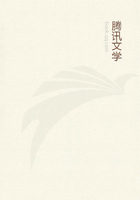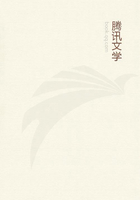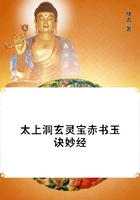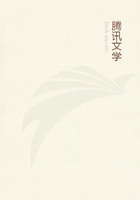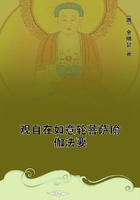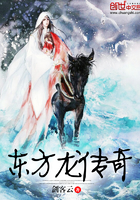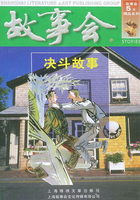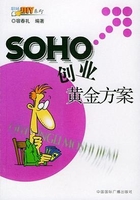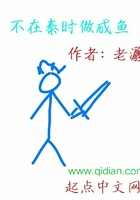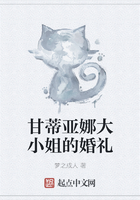Both are lyric poems in the form of plays. There are perhaps no two kinds of composition so essentially dissimilar as the drama and the ode. The business of the dramatist is to keep himself out of sight, and to let nothing appear but his characters. As soon as he attracts notice to his personal feelings, the illusion is broken. The effect is as unpleasant as that which is produced on the stage by the voice of a prompter or the entrance of a scene-shifter. Hence it was, that the tragedies of Byron were his least successful performances. They resemble those pasteboard pictures invented by the friend of children, Mr. Newbery, in which a single moveable head goes round twenty different bodies, so that the same face looks out upon us successively, from the uniform of a hussar, the furs of a judge, and the rags of a beggar. In all the characters, patriots and tyrants, haters and lovers, the frown and sneer of Harold were discernible in an instant. But this species of egotism, though fatal to the drama, is the inspiration of the ode. It is the part of the lyric poet to abandon himself, without reserve, to his own emotions.
Between these hostile elements many great men have endeavoured to effect an amalgamation, but never with complete success. The Greek Drama, on the model of which the Samson was written, sprang from the Ode. The dialogue was ingrafted on the chorus, and naturally partook of its character. The genius of the greatest of the Athenian dramatists cooperated with the circumstances under which tragedy made its first appearance. Aeschylus was, head and heart, a lyric poet. In his time, the Greeks had far more intercourse with the East than in the days of Homer; and they had not yet acquired that immense superiority in war, in science, and in the arts, which, in the following generation, led them to treat the Asiatics with contempt. From the narrative of Herodotus it should seem that they still looked up, with the veneration of disciples, to Egypt and Assyria. At this period, accordingly, it was natural that the literature of Greece should be tinctured with the Oriental style. And that style, we think, is discernible in the works of Pindar and Aeschylus. The latter often reminds us of the Hebrew writers. The book of Job, indeed, in conduct and diction, bears a considerable resemblance to some of his dramas.
Considered as plays, his works are absurd; considered as choruses, they are above all praise. If, for instance, we examine the address of Clytemnestra to Agamemnon on his return, or the description of the seven Argive chiefs, by the principles of dramatic writing, we shall instantly condemn them as monstrous.
But if we forget the characters, and think only of the poetry, we shall admit that it has never been surpassed in energy and magnificence. Sophocles made the Greek Drama as dramatic as was consistent with its original form. His portraits of men have a sort of similarity; but it is the similarity not of a painting, but of a bas-relief. It suggests a resemblance; but it does not produce an illusion. Euripides attempted to carry the reform further. But it was a task far beyond his powers, perhaps beyond any powers. Instead of correcting what was bad, he destroyed what was excellent. He substituted crutches for stilts, bad sermons for good odes.
Milton, it is well known, admired Euripides highly, much more highly than, in our opinion, Euripides deserved. Indeed the caresses which this partiality leads our countryman to bestow on "sad Electra's poet," sometimes remind us of the beautiful Queen of Fairy-land kissing the long ears of Bottom. At all events, there can be no doubt that this veneration for the Athenian, whether just or not, was injurious to the Samson Agonistes. Had Milton taken Aeschylus for his model, he would have given himself up to the lyric inspiration, and poured out profusely all the treasures of his mind, without bestowing a thought on those dramatic proprieties which the nature of the work rendered it impossible to preserve. In the attempt to reconcile things in their own nature inconsistent he has failed, as every one else must have failed. We cannot identify ourselves with the characters, as in a good play. We cannot identify ourselves with the poet, as in a good ode. The conflicting ingredients, like an acid and an alkali mixed, neutralise each other. We are by no means insensible to the merits of this celebrated piece, to the severe dignity of the style, the graceful and pathetic solemnity of the opening speech, or the wild and barbaric melody which gives so striking an effect to the choral passages. But we think it, we confess, the least successful effort of the genius of Milton.
The Comus is framed on the model of the Italian Masque, as the Samson is framed on the model of the Greek Tragedy. It is certainly the noblest performance of the kind which exists in any language. It is as far superior to the Faithful Shepherdess as the Faithful Shepherdess is to the Aminta, or the Aminta to the Pastor Fido. It was well for Milton that he had here no Euripides to mislead him. He understood and loved the literature of modern Italy. But he did not feel for it the same veneration which he entertained for the remains of Athenian and Roman poetry, consecrated by so many lofty and endearing recollections. The faults, moreover, of his Italian predecessors were of a kind to which his mind had a deadly antipathy. He could stoop to a plain style, sometimes even to a bald style; but false brilliancy was his utter aversion. His muse had no objection to a russet attire; but she turned with disgust from the finery of Guarini, as tawdry and as paltry as the rags of a chimney-sweeper on May-day.
Whatever ornaments she wears are of massive gold, not only dazzling to the sight, but capable of standing the severest test of the crucible.

